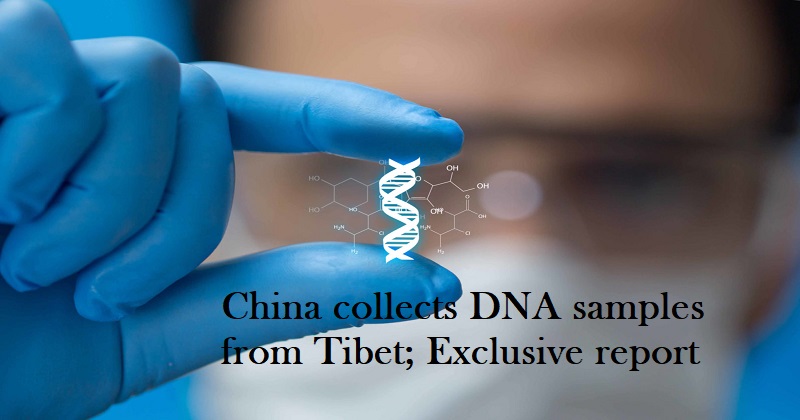Chinese authorities have been collecting DNA samples from across Tibet, including from kindergarten children, without the apparent consent of their parents, according to Human Rights Watch. The human rights group, in a new report released Monday, claimed fresh evidence showing a systematic DNA collection operation on entire populations across Tibet as part of a “crime exposure” operation. “There is no publicly available evidence that people can refuse to participate or that the police have any credible evidence of criminal behavior that could justify such a collection,” she said, adding that a mass gathering for such a purpose “should not be considered necessary or proportionately justifiable”.
The DNA collection operations detailed in the report began in 2019 as part of a police campaign known as the “Big Three” (inspection, investigation, and mediation) aimed at strengthening China’s intensive, grass-roots policing system. In addition, two government tenders for building local DNA databases in 2019 were mentioned in the report.
Human Rights Watch identified drives in 14 different locations in the Tibet Autonomous Region (TAR) and cited publicly available police and state media publications, including an entire prefecture, two counties, two cities, two townships and seven villages. It also detected some fundraising activities in Tibetan areas outside the TAR. The campaign has been described as “intrusive policing”, with samples taken from all residents of some villages, including children as young as five, or from all male residents. Police detailed information and DNA collection efforts in Chonggye County in a January report.
Tibet has been under Chinese control since its annexation more than 70 years ago, in what the Tibetans call an invasion and Beijing call a peaceful liberation from theocratic rule. It is one of several border regions, including Xinjiang and Mongolia, that have long cracked down on the religious and cultural practices of non-Han ethnic minorities. According to the report, police in Nyemo County, Lhasa Municipality, collected DNA from whole classes of children in three kindergartens in April with no evidence that the parents were involved in the consent process.
It found that the stated purpose of “detecting crime” did not appear legitimate, proportionate or in the best interests of the child, and that DNA collection in a school setting was possible without the consent of caregivers or an apparent opt-out option was a Violation of children’s privacy. According to a publicly available report on the school collection, the police “promptly allayed the doubts and concerns of the masses, and gained the support and understanding of the people collected” by “emphasizing the necessity and importance of DNA samples collected by the public authorities.” Security were collected, explained ‘.
Human Rights Watch explained that while government DNA collection is sometimes justified as an investigative tool, it “must be fully regulated, narrowly limited, and proportionate to achieve a legitimate security objective. DNA information is highly sensitive and can facilitate a wide range of abuses if collected or shared without consent,” it said. According to the researchers, the TAR campaign was on a similar scale to DNA collection campaigns in Xinjiang, targeting communities as a whole rather than individual cohorts of concern such as B. recently released prisoners, as has been the case elsewhere in China.
In the past, human rights groups have expressed concern about China’s DNA collection. The government established a national DNA database in 2000 containing information on at least 40 million people. According to Human Rights Watch, Chinese law appears to limit DNA sample collection to individuals linked to a specific crime, but police have campaigned to collect biometric DNA information from ordinary citizens because they “have a… have unspecified needs to solve crimes”.
“Any forced collection or use by the government is a ‘serious interference with the right to privacy,’ according to the rights group. “Forcing people to give blood samples or taking blood samples without informed, meaningful and freely given consent or justification may violate an individual’s privacy, dignity and right to physical integrity.” The press officer for Tibet at China’s foreign ministry declined to comment .

